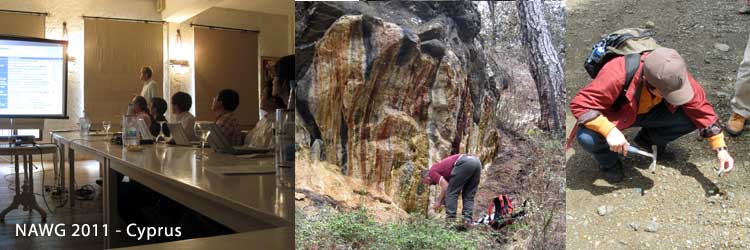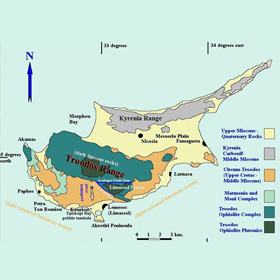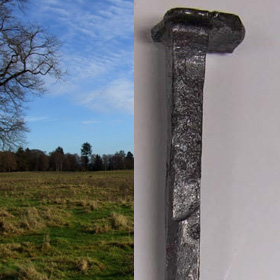
Formation of NAWG - Natural Analogue Working Group
Owing to the considerable upsurge of interest on the topic of natural analogues, a group of individuals working for or in national waste disposal programmes, took the initiative of establishing, in June 1985, NAWG, the Natural Analogue Working Group (originally under the auspice of the European Commission).
This was carried out to offer an international forum for:
- The discussion of natural analogue programmes from around the world.
- Assessing the relevance and appreciation of natural analogues to radioactive and toxic waste disposal - and now CO2 sequestration.
These themes have been addressed at 15 international workshops, since 1985.
- 17th Workshop took place on 8th to 11th May, 2023 in Zadar, Croatia
- 16th Workshop took place on 15th to 18th October, 2019 in Yamagata, Japan, Click to view the proceedings
- 15th Workshop took place on 23rd to 25th May, 2017 in Prague in the Czech Republic, Click to view presentations and papers
- 14th Workshop took place on 9th to 11th June, 2015 in Rauma, Finland, Click to view presentations and papers.
- 13th Workshop took place on 13-16th May, 2013 in Nagoya in Japan, Click here to view presentations and papers.
- 12th Workshop took place on 11-13th May, 2011 in Larnaca in Cyprus. Click to view the Workshop Agenda, all presentations for download, short Field Trip video and interactive 360 view.
- 11th Workshop: Liverpool, UK, 2009 where a short meeting was held at the 12 th ICEM (International Conference on Environmental Remediation).
- 10th Workshop: Munich, Germany, 2007 where the workshop examined how current and future studies could be better focussed on providing appropriate data for the various end-users of natural analogue data. Click here to view presentations and papers.
- 9th Workshop: Aarau, Switzerland, 2002, where the theme was the current international status of natural analogues.
- 8th Workshop: Strasbourg, France, 1999, was devoted to a presentation of three, major international natural analogue projects, Oklo (II), Palmottu and Pena Blanca (EUR 19118) pdf 8th NAWG Workshop, Strasbourg 1999(34.91 MB) ;
- 7th Workshop: Stein am Rhein, Switzerland, 1996, where one of the main themes of the workshop was the application of natural analogues to toxic wastes ( EUR 17851 EN);
- 6th Workshop: Santa Fe, USA, 1994, where the intention was to review the "state-of-the-art" of several key issues in near-field and far-field processes and their importance to PA with the intention to provide a consensus view of the remaining areas requiring further research in natural analogues (EUR 16761) pdf 6th NAWG Workshop, Santa Fe 1994(11.02 MB) ;
- 5th Workshop: Toledo, Spain, 1992, was held in association with the final workshop of the Alligator Rivers Analogues project (EUR 15176) pdf 5th NAWG Workshop, Toledo 1992(10.77 MB) ;
- 4th Workshop: Pitlochry, Scotland, 1990, was devoted to review 5 years of NA studies and the final conclusions drawn from the Poças de Caldas study (EUR 13014) pdf 4th NAWG Workshop, Pitlochry, 1990(5.66 MB) ;
- 3rd Workshop: Snowbird, USA, 1988, where the application of natural analogues to repository performance assessment was discussed (EUR 11725);
- 2nd workshop: Interlaken, Switzerland, 1986, where anthropogenic analogues and the role of colloids, complexes and microbes have been reviewed (EUR 10671);
- 1st Workshop: Brussels, Belgium, 1985, where the theme was the interaction between the modellers and experimenters (EUR 10315). pdf 1st NAWG Workshop Brussels, 1985(13.53 MB)
Advances made since the formation of NAWG
- Studying natural analogues has greatly increased the understanding of repository-relevant processes and improved the capability to describe and effectively model them.
- The larger, multi-objective analogue studies are a very cost effective way of training site characterisation and performance assessment groups on real, complex systems.
- The application of analogues in broadening public perception of the natural context of waste disposal is under development.
- An increased awareness of the potential for studying natural analogues of chemotoxic waste.
- The significant role of natural analogues in understanding the long-term impacts of CO2





